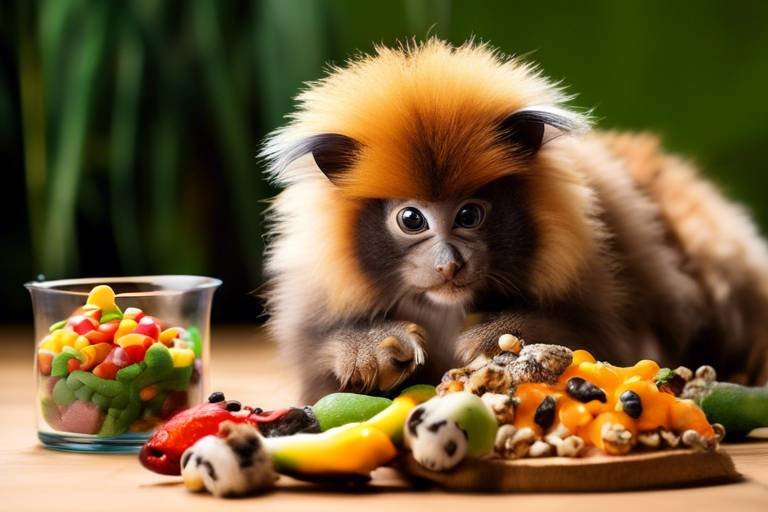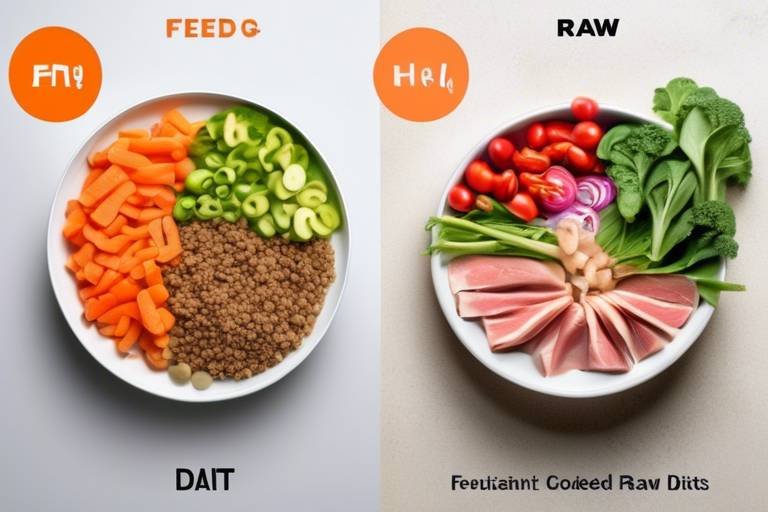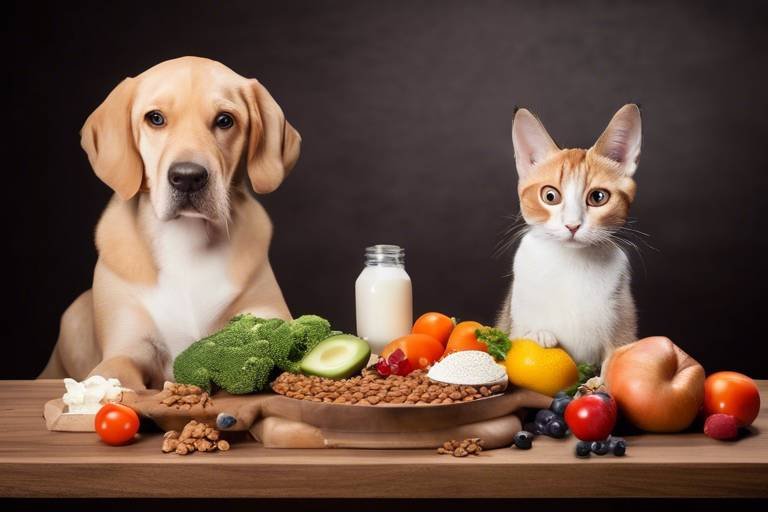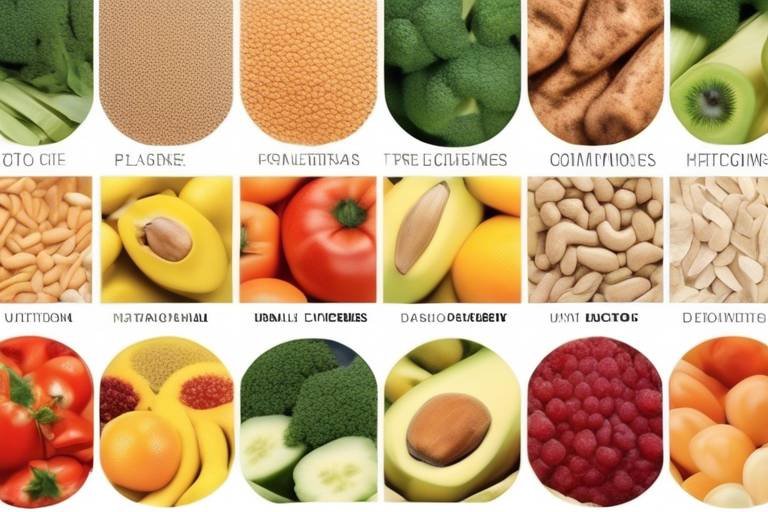Understanding Pet Nutrition for Exotic Animals
When it comes to caring for our beloved exotic pets, understanding their unique nutritional needs is not just a bonus; it's a necessity. Unlike traditional pets like dogs and cats, exotic animals, including reptiles, birds, and small mammals, have specific dietary requirements that are crucial for their health and longevity. Imagine trying to feed a parrot the same kibble you give your dog—it's simply not going to cut it! Each species has evolved to thrive on particular types of food, and failing to meet these needs can lead to serious health issues.
As a pet owner, you might find yourself overwhelmed by the sheer variety of foods available for exotic pets. From leafy greens for iguanas to seeds and pellets for parrots, the options can be both exciting and daunting. The key is to educate yourself about the specific requirements of your pet's species. For instance, did you know that iguanas are primarily herbivorous and require a diet high in leafy greens and low in protein? On the other hand, a bird like a cockatiel thrives on a mix of seeds, fruits, and vegetables. Understanding these differences can make all the difference in your pet's quality of life.
Moreover, it's not just about what you feed them; it's also about how you feed them. Exotic pets often require a varied diet to ensure they receive all the essential nutrients. A monotonous diet can lead to deficiencies, impacting their overall health and vitality. Think of it like a colorful palette—just as an artist needs a variety of colors to create a masterpiece, your exotic pet needs a range of foods to thrive. This can include fresh fruits, vegetables, and even insects for some species. By diversifying their diet, you can help prevent health issues and keep your pet happy and energetic.
In this article, we will delve deeper into the unique dietary needs of exotic pets, debunk some common myths surrounding their nutrition, and highlight the essential nutrients they require. We will also provide practical feeding practices that can help you become a more informed and responsible pet owner. So, whether you're a seasoned exotic pet owner or considering bringing one into your home, understanding pet nutrition for these unique animals is the first step in ensuring their health and happiness.
- What are the basic dietary needs of exotic pets?
Exotic pets generally require a balanced diet that includes a variety of fruits, vegetables, proteins, and, in some cases, specialized pellets or seeds. It's important to research the specific needs of your pet's species. - Can I feed my exotic pet table scraps?
While some fruits and vegetables may be safe, many human foods can be harmful to exotic pets. Always consult a vet or do thorough research before introducing new foods. - How often should I feed my exotic pet?
Feeding frequency can vary by species. For example, some reptiles may only eat a few times a week, while birds may require daily feeding. Always check the specific needs of your pet. - Are supplements necessary for exotic pets?
Supplements can be beneficial but are not always required. It's best to consult with a veterinarian to determine if your pet needs additional nutrients.
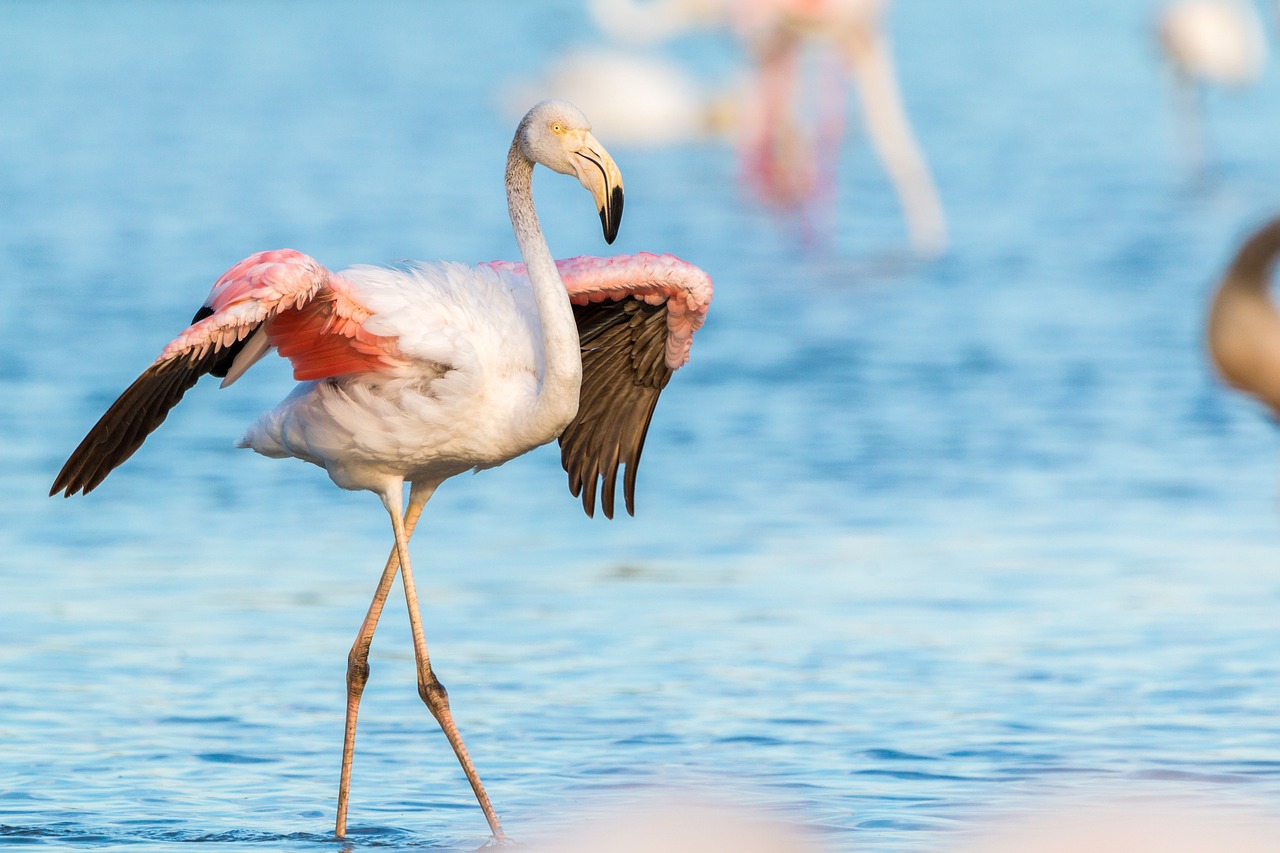
The Unique Nutritional Needs of Exotic Pets
This article explores the unique dietary needs of exotic pets, highlighting essential nutrients, feeding practices, and common misconceptions to help owners provide optimal care for their beloved animals.
Exotic pets, such as reptiles, birds, and small mammals, have unique dietary requirements that differ significantly from those of traditional pets like dogs and cats. This variance is primarily due to their distinct biological and ecological backgrounds. For instance, a parrot's diet may primarily consist of seeds and fruits, while a tortoise may thrive on leafy greens and vegetables. Understanding these specific needs is crucial for ensuring the health and well-being of these fascinating creatures.
One of the first steps in meeting the nutritional needs of exotic pets is recognizing that one size does not fit all. Each species has its own set of dietary requirements, which can be influenced by factors such as age, size, and activity level. For example, a growing iguana requires a higher calcium intake compared to an adult, while a bird in breeding condition may need more protein. Therefore, it’s essential for pet owners to educate themselves about the specific needs of their exotic pets.
Moreover, the availability of fresh food is another critical factor. Many exotic pets benefit from a diet rich in fresh fruits, vegetables, and even insects or specialized pellets. This not only provides essential nutrients but also mimics their natural foraging behaviors. Just like how we enjoy a colorful salad, exotic pets thrive on variety. A diet lacking in diversity can lead to nutritional deficiencies and health problems over time.
To help illustrate the diverse dietary needs of exotic pets, consider the following table:
| Species | Key Nutritional Needs | Preferred Foods |
|---|---|---|
| Iguana | High calcium, low protein | Leafy greens, vegetables |
| Parrot | High vitamin A, protein | Fruits, seeds, pellets |
| Bearded Dragon | High protein, calcium | Insects, greens, fruits |
In addition to understanding the specific dietary needs, pet owners should also be aware of the importance of hydration. Exotic pets often have different water requirements than traditional pets. For instance, some reptiles may require a shallow water dish for soaking, while birds may need fresh water daily for drinking and bathing. Ensuring that your exotic pet has clean, accessible water can greatly enhance their quality of life.
In summary, the unique nutritional needs of exotic pets necessitate a tailored approach to their diets. By understanding the specific requirements of each species, offering a variety of foods, and ensuring proper hydration, pet owners can significantly improve the health and happiness of their exotic companions.
Many misconceptions surround the diets of exotic animals. Debunking these myths can lead to better care and improved health outcomes for these unique pets.
It's a common belief that all exotic animals share similar dietary needs. However, each species has distinct requirements that must be addressed for optimal health.
Different species, such as iguanas and parrots, require tailored diets. Knowing the specific needs of each species is essential for their growth and vitality.
A varied diet is crucial for exotic pets to ensure they receive all necessary nutrients. Offering a range of foods can prevent deficiencies and promote overall health.
While supplements can be beneficial, they are not always required. Understanding when and how to use them is vital for maintaining a balanced diet for exotic pets.
Providing the right balance of nutrients is key to the health of exotic pets. This section discusses the essential vitamins, minerals, and proteins they need.
Vitamins and minerals play a crucial role in the overall health of exotic pets. Identifying which nutrients are essential for specific species can help in formulating their diets.
Proteins are fundamental for growth and repair in exotic animals. Understanding the best sources of protein for different species is essential for their dietary planning.
Proper feeding practices can significantly impact the health and longevity of exotic animals. This section outlines best practices for feeding and caring for these unique pets.
The feeding frequency of exotic pets can vary widely. Knowing how often to feed different species is crucial for maintaining their health and preventing obesity.
Fresh food preparation is vital for exotic animals. This section provides tips on how to prepare and store fresh food to maintain its nutritional value.
- What should I feed my iguana? - Iguanas thrive on leafy greens and vegetables, with a focus on calcium-rich options.
- Can I feed my parrot only seeds? - No, a varied diet including fruits, vegetables, and pellets is essential for a parrot's health.
- How often should I feed my exotic pet? - Feeding frequency varies by species; consult a veterinarian for specific recommendations.
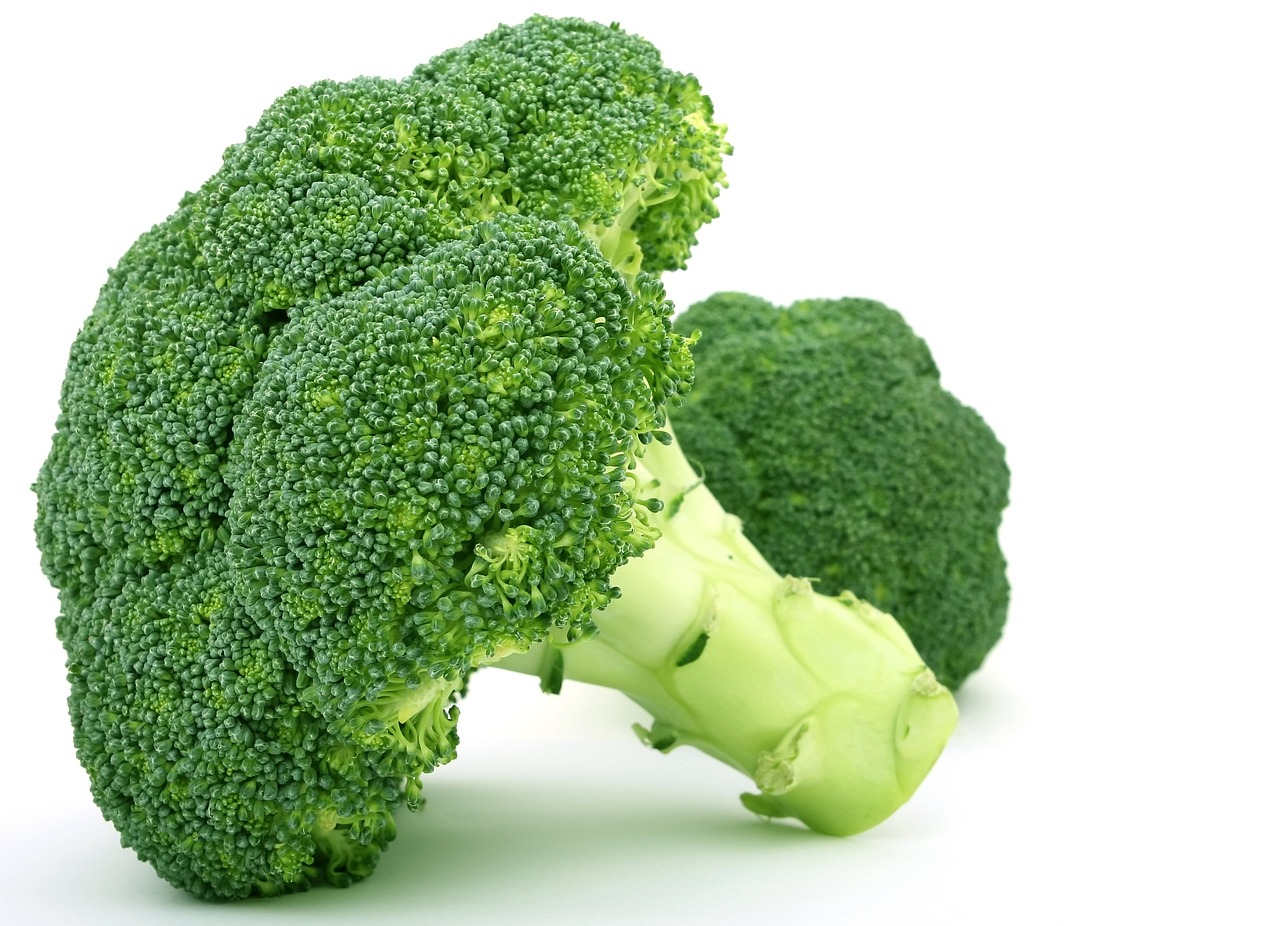
Common Myths About Exotic Pet Diets
When it comes to the diets of exotic pets, there are numerous misconceptions that can lead to serious health issues if left unchallenged. Many pet owners are often misinformed, believing that all exotic animals share similar dietary needs or that they can thrive on a one-size-fits-all diet. This is simply not the case! Just like humans, each species has its unique requirements that must be met for optimal health. It's essential to debunk these myths to ensure that our beloved exotic pets receive the care they truly deserve.
One of the most prevalent myths is the idea that all exotic pets eat the same food. This misconception can be particularly harmful, as it ignores the specific dietary needs of different species. For instance, an iguana's diet primarily consists of leafy greens and vegetables, while a parrot thrives on a mix of seeds, fruits, and nuts. Failing to recognize these differences can lead to nutritional deficiencies or even serious health concerns. Understanding species-specific diets is crucial in providing the right nutrition for your exotic pets.
Another common myth is the belief that variety is unnecessary in an exotic pet's diet. Some owners might think that feeding their pets the same food every day is sufficient. However, just like we enjoy a diverse range of foods for our own health, exotic animals also benefit from a varied diet. This variety not only helps prevent deficiencies but also keeps the animals engaged and interested in their meals. So, don’t hesitate to mix it up! Incorporating different fruits, vegetables, and protein sources can lead to a happier, healthier pet.
Then there's the misconception that supplements are always necessary for exotic pets. While it’s true that certain species may benefit from additional vitamins or minerals, it’s important to remember that a balanced diet often provides all the nutrients they need. Over-supplementation can even lead to toxicity in some cases. Therefore, it's vital to consult with a veterinarian who specializes in exotic animals to determine the best dietary strategy for your pet.
In summary, understanding the truth behind these common myths can significantly improve the health and well-being of exotic pets. By recognizing that each species has unique dietary needs, emphasizing the importance of variety, and knowing when to use supplements, pet owners can provide a more balanced and nutritious diet. With this knowledge, you can ensure that your exotic friend thrives and lives a long, healthy life.
- What should I feed my exotic pet? - The diet varies greatly depending on the species. Research the specific needs of your pet to ensure they receive the right nutrients.
- How often should I feed my exotic pet? - Feeding frequency can differ by species. Consult with a veterinarian for a feeding schedule tailored to your pet.
- Are supplements necessary for all exotic pets? - Not always. A balanced diet is usually sufficient, but some pets may benefit from specific supplements.
Myth: All Exotic Pets Eat the Same Food
It's a common misconception that all exotic pets share similar dietary needs, but this couldn't be further from the truth. Just like humans have different nutritional requirements based on their age, health, and lifestyle, exotic animals such as reptiles, birds, and small mammals each have unique dietary preferences and needs that must be addressed for optimal health. For instance, a green iguana thrives on a diet rich in leafy greens, while a parrot requires a mix of seeds, nuts, and fruits to stay healthy. This diversity in dietary requirements makes it essential for pet owners to do their homework before deciding what to feed their exotic companions.
Understanding the specific needs of each species is crucial. Some animals, like herbivorous reptiles, may require a high-fiber diet, while others, like carnivorous reptiles, need a protein-rich diet. If you were to feed an iguana the same diet as a bearded dragon, for instance, you would likely encounter serious health issues. The table below illustrates the dietary differences among a few common exotic pets:
| Species | Diet Type | Key Foods |
|---|---|---|
| Green Iguana | Herbivore | Leafy greens, fruits |
| Bearded Dragon | Omnivore | Insects, vegetables |
| Budgerigar (Budgie) | Granivore | Seeds, fruits |
| Ball Python | Carnivore | Rodents, birds |
Moreover, the importance of variety cannot be overstated. Just like we enjoy a range of foods to get all the nutrients we need, exotic pets also benefit from a diverse diet. Offering a mix of foods not only keeps mealtime interesting for them but also ensures they receive a comprehensive range of essential nutrients. Think of it this way: feeding your exotic pet a single type of food is like eating bread for every meal—nutritionally inadequate and downright boring!
So, the next time you hear someone say that all exotic pets eat the same food, remember that this myth can lead to serious health issues for these unique animals. Always research the specific dietary needs of your pet species to ensure they live a long, happy, and healthy life.
Species-Specific Diets
When it comes to feeding exotic pets, one size definitely does not fit all. Just like humans have different dietary needs based on their lifestyle and health, exotic animals require tailored diets that cater to their unique biological and physiological characteristics. For instance, iguanas are primarily herbivores, thriving on a diet rich in leafy greens, fruits, and vegetables. They need a high-fiber intake to support their digestive health, and if their diet lacks this, it can lead to serious health issues. On the other hand, parrots are omnivores, which means they need a mix of seeds, nuts, fruits, and vegetables to thrive. This diversity in diet not only keeps them healthy but also stimulates their natural foraging behavior, which is crucial for their mental well-being.
Understanding the specific dietary requirements of various species is essential for pet owners. For example, carnivorous reptiles like certain snakes need a protein-rich diet primarily composed of whole prey items, such as mice or rats, to ensure they receive all necessary nutrients. Conversely, herbivorous reptiles, such as tortoises, require a diet high in grasses and leafy greens, supplemented with occasional fruits. This distinction is vital because feeding the wrong diet can lead to malnutrition or even fatal health conditions.
Moreover, the age and health status of the pet can also influence their dietary needs. For example, juvenile reptiles may require more protein for growth, while older animals may need diets lower in protein but higher in fiber to aid digestion. It’s like adjusting your diet as you age; what works for a teenager may not be suitable for a senior citizen. Therefore, it's crucial for pet owners to consult with a veterinarian who specializes in exotic animals to create a diet plan that is as unique as their pet.
To summarize, here are some key points regarding species-specific diets:
- Iguanas: High-fiber herbivorous diet with leafy greens and vegetables.
- Parrots: Omnivorous diet including seeds, nuts, fruits, and veggies.
- Carnivorous reptiles: Whole prey items for protein.
- Herbivorous reptiles: Grasses and leafy greens with occasional fruits.
By recognizing the diverse dietary needs of different exotic species, pet owners can ensure their beloved animals lead healthy, vibrant lives. Remember, a well-fed exotic pet is not just a happy pet; it’s a thriving member of your family!
- What is the best diet for my iguana? A diet rich in leafy greens, vegetables, and some fruits is ideal for iguanas.
- Can I feed my parrot only seeds? No, a varied diet including fruits, vegetables, and nuts is essential for their health.
- How often should I feed my exotic pet? Feeding frequency varies by species; consult with a vet for specific recommendations.
- Are supplements necessary for exotic pets? Supplements can be helpful but are not always required. A balanced diet is key.
Importance of Variety
When it comes to feeding exotic pets, one of the most critical aspects that often gets overlooked is the . Just like humans, exotic animals thrive on a diverse diet that offers a wide range of nutrients. Imagine eating the same meal every day; it would become boring and could lead to nutritional deficiencies. The same concept applies to our exotic companions. Providing a varied diet helps to ensure that these animals receive all the essential nutrients they need to maintain their health, energy levels, and overall well-being.
Many owners might think that a single type of food is sufficient for their pet, but this is a common misconception. Different foods contain different vitamins, minerals, and other essential compounds. For instance, a diet solely based on pellets may not provide the necessary fiber or antioxidants that fruits and vegetables offer. By incorporating a mix of foods such as leafy greens, fruits, insects, and specially formulated pellets, owners can create a more balanced diet that supports their pet's unique biological needs.
Additionally, variety can help prevent boredom and encourage natural foraging behaviors. Exotic pets, especially birds and reptiles, are instinctively driven to explore and seek out food. By offering a range of foods, owners can stimulate their pets mentally and physically, which is crucial for their happiness and health. For example, you might consider rotating the types of greens you offer or introducing new fruits each week. This not only keeps mealtime exciting but also promotes a more enriching environment.
To summarize, here are some key points regarding the importance of variety in the diets of exotic pets:
- Prevents Nutritional Deficiencies: A varied diet ensures that all essential nutrients are included.
- Encourages Natural Behaviors: A mix of foods stimulates foraging instincts, promoting mental health.
- Enhances Enjoyment: Different textures and flavors make mealtime more enjoyable for pets.
In conclusion, variety is not just a luxury for exotic pets; it is a necessity. By providing a diverse diet, owners can significantly enhance the quality of life for their beloved animals, ensuring they live longer, healthier, and happier lives.
Q1: How often should I change the food variety for my exotic pet?
A1: It's a good practice to rotate different food options weekly to provide a well-rounded diet. However, always introduce new foods gradually to avoid digestive issues.
Q2: Can I feed my exotic pet fruits and vegetables every day?
A2: Yes, many exotic pets benefit from daily servings of fresh fruits and vegetables, but make sure to research which specific types are safe and beneficial for your pet's species.
Q3: Are there any foods I should avoid giving to my exotic pet?
A3: Certain foods, like avocado and chocolate, can be toxic to many exotic animals. Always consult with a veterinarian or a reliable source before introducing new foods.
Q4: How can I ensure my exotic pet is getting a balanced diet?
A4: Consult with a veterinarian who specializes in exotic animals to create a tailored diet plan. Regularly monitor your pet's health and adjust their diet as necessary.
Myth: Supplements Are Always Necessary
When it comes to the nutrition of exotic pets, there’s a prevalent myth that supplements are a mandatory part of their diet. While it's true that some exotic animals can benefit from additional vitamins and minerals, the notion that every exotic pet requires supplements is misleading. Just like humans, exotic pets can thrive on a well-balanced diet that meets their specific nutritional needs. It’s essential to understand that the necessity of supplements largely depends on the individual animal, its species, and its overall diet.
For instance, many exotic pets, such as certain reptiles and birds, can obtain most of their required nutrients from a properly formulated diet. If you provide a diverse array of fresh fruits, vegetables, and proteins, you might find that supplements become unnecessary. However, there are exceptions to this rule. Some animals may have specific health conditions or dietary restrictions that necessitate supplementation. Therefore, it’s crucial to consult with a veterinarian who specializes in exotic pets to assess your pet’s unique needs.
Moreover, over-supplementation can lead to health issues just as much as under-supplementation. For example, too much calcium can cause metabolic bone disease in reptiles, while excess vitamin A can lead to toxicity in certain bird species. This highlights the importance of not only understanding your pet’s diet but also monitoring their health regularly. A balanced diet tailored to the species can often negate the need for supplements, allowing your exotic pet to lead a happier, healthier life.
In conclusion, while supplements can be beneficial in certain situations, they are not a blanket requirement for all exotic pets. A focus on species-specific dietary needs, combined with regular veterinary check-ups, can ensure that your exotic pet remains healthy and vibrant without an over-reliance on supplements.
- Do all exotic pets need supplements? Not necessarily; many can thrive on a balanced diet tailored to their specific needs.
- How can I determine if my pet needs supplements? Consult with a veterinarian familiar with exotic animals for personalized advice.
- Can too many supplements harm my pet? Yes, over-supplementation can lead to serious health issues.
- What is the best way to prepare food for my exotic pet? Fresh, varied diets are ideal; consult species-specific guidelines for best practices.

Essential Nutrients for Exotic Animals
When it comes to feeding exotic pets, understanding their nutritional needs goes beyond just tossing in some food and hoping for the best. Providing the right balance of nutrients is crucial for the health and well-being of these unique creatures. Exotic animals, including reptiles, birds, and small mammals, require a diet that is specifically tailored to their species, age, and health status. This means recognizing the essential vitamins, minerals, and proteins they need to thrive.
Vitamins and minerals are the building blocks of a healthy diet for exotic pets. These nutrients play a vital role in various bodily functions, from bone development to immune system support. For instance, calcium is particularly important for reptiles and birds, as it supports bone health and helps prevent metabolic bone disease. On the other hand, vitamin A is essential for vision and skin health, especially in reptiles like iguanas. Understanding which vitamins and minerals are necessary for each species can help pet owners formulate a balanced diet. Below is a table that outlines some key vitamins and minerals and their benefits:
| Nutrient | Function | Sources |
|---|---|---|
| Calcium | Bone health, muscle function | Leafy greens, calcium supplements |
| Vitamin A | Vision, skin health | Carrots, sweet potatoes, leafy greens |
| Vitamin D3 | Calcium absorption | Sunlight, certain fish |
| Vitamin E | Antioxidant, immune function | Nuts, seeds, leafy greens |
Protein is another fundamental nutrient that exotic pets cannot do without. It is essential for growth, repair, and overall energy levels. Different species have varying protein requirements; for example, carnivorous reptiles like snakes need a diet high in animal protein, while herbivorous reptiles like tortoises thrive on plant-based proteins. Understanding the best sources of protein for each species is crucial. Here are some common protein sources:
- Insects (crickets, mealworms) - ideal for reptiles and some birds.
- Commercial pellets - specially formulated for specific species.
- Lean meats - suitable for carnivorous species.
- Legumes and beans - great plant-based protein for herbivores.
Moreover, it’s important to note that exotic pets often require a varied diet to ensure they receive all necessary nutrients. Just like humans, these animals can suffer from deficiencies if their diet lacks diversity. Offering a range of foods not only prevents nutritional deficiencies but also keeps mealtime exciting for your pet. Think of it as a buffet where every dish contributes to a balanced meal!
In conclusion, paying attention to the essential nutrients that exotic animals need is a critical aspect of responsible pet ownership. By understanding their specific dietary requirements, pet owners can ensure their exotic companions lead healthy and vibrant lives. Remember, the journey to optimal nutrition is not just about feeding; it’s about nurturing and caring for your pet in the best way possible.
Q: What are the most important nutrients for exotic pets?
A: The most important nutrients include vitamins (like A, D3, and E), minerals (especially calcium), and proteins. Each species may have specific needs, so it's essential to research your pet's requirements.
Q: Can I feed my exotic pet the same food every day?
A: It's not recommended. A varied diet helps prevent nutritional deficiencies and keeps your pet healthy and happy. Try to mix different food types to provide a balanced diet.
Q: Are supplements necessary for exotic pets?
A: Supplements can be beneficial, but they are not always necessary. It's best to consult with a veterinarian to determine if your pet requires any additional supplements based on their diet and health status.
Vitamins and Minerals
When it comes to the health of exotic pets, are not just optional extras; they are the building blocks of a healthy life. Just like humans, these animals require a balanced intake of various nutrients to thrive. However, the specific needs can vary dramatically between species. For instance, an iguana's dietary requirements will differ significantly from those of a parrot. This makes it essential for pet owners to be well-informed about the nutritional needs of their unique companions.
Vitamins play a vital role in numerous bodily functions, including metabolism, immune response, and overall growth. For example, Vitamin A is crucial for vision and skin health, while Vitamin D is essential for calcium absorption, which is particularly important for reptiles that rely on a proper calcium-to-phosphorus ratio for bone health. Inadequate intake of these vitamins can lead to serious health issues, such as metabolic bone disease in reptiles or feather plucking in birds.
Minerals, on the other hand, are equally important for maintaining bodily functions. They help in nerve transmission, muscle function, and hydration. For example, calcium and phosphorus are crucial for bone density, while potassium is vital for heart and muscle functions. To illustrate the importance of these nutrients, consider the following table:
| Nutrient | Function | Sources |
|---|---|---|
| Vitamin A | Vision, skin health | Carrots, leafy greens |
| Vitamin D | Calcium absorption | Sunlight, fortified foods |
| Calcium | Bone health | Leafy greens, supplements |
| Phosphorus | Bone density | Meat, fish, seeds |
| Potassium | Nerve and muscle function | Bananas, sweet potatoes |
Understanding these essential nutrients allows pet owners to create a balanced diet that meets the specific needs of their exotic animals. However, it’s not enough to just throw a few vegetables or pellets into a cage; the quality and variety of food play a significant role in ensuring that these pets receive all the necessary vitamins and minerals. For example, while a diet of only leafy greens might be appealing to some reptiles, it could lead to deficiencies in other vital nutrients. Therefore, incorporating a variety of food sources is key.
Additionally, it's important to note that some exotic pets may require specific supplements to meet their dietary needs, especially if they are not receiving adequate nutrition from their regular diet. Consulting with a veterinarian who specializes in exotic animals can help clarify what supplements, if any, should be included in their diet. This proactive approach not only ensures that your pet is getting the right nutrients but also helps in preventing common health issues associated with nutritional deficiencies.
- What are the signs of vitamin deficiency in exotic pets? Look for changes in behavior, appetite, and physical appearance. For example, lethargy or unusual feather loss in birds can indicate deficiencies.
- Can I use human vitamins for my exotic pet? No, human vitamins can be harmful to exotic pets. Always use supplements specifically formulated for their species.
- How can I ensure my exotic pet is getting enough nutrients? Consult with a veterinarian and provide a varied diet that includes fresh fruits, vegetables, and appropriate protein sources.
Protein Sources
This article explores the unique dietary needs of exotic pets, highlighting essential nutrients, feeding practices, and common misconceptions to help owners provide optimal care for their beloved animals.
Exotic pets, such as reptiles and birds, have specific dietary requirements that differ greatly from traditional pets. Understanding these needs is crucial for their health and well-being.
Many misconceptions surround the diets of exotic animals. Debunking these myths can lead to better care and improved health outcomes for these unique pets.
It's a common belief that all exotic animals share similar dietary needs. However, each species has distinct requirements that must be addressed for optimal health.
Different species, such as iguanas and parrots, require tailored diets. Knowing the specific needs of each species is essential for their growth and vitality.
A varied diet is crucial for exotic pets to ensure they receive all necessary nutrients. Offering a range of foods can prevent deficiencies and promote overall health.
While supplements can be beneficial, they are not always required. Understanding when and how to use them is vital for maintaining a balanced diet for exotic pets.
Providing the right balance of nutrients is key to the health of exotic pets. This section discusses the essential vitamins, minerals, and proteins they need.
Vitamins and minerals play a crucial role in the overall health of exotic pets. Identifying which nutrients are essential for specific species can help in formulating their diets.
Proteins are fundamental for growth and repair in exotic animals. Just like humans need a balanced diet to thrive, exotic pets rely on specific protein sources to maintain their health. For instance, birds often benefit from a diet rich in seeds and nuts, while reptiles might require insects or specially formulated pellets. The key is to understand the unique protein needs of each species.
Here’s a quick breakdown of some common protein sources for various exotic pets:
| Pet Type | Protein Sources |
|---|---|
| Birds (e.g., Parrots) | Seeds, nuts, legumes, cooked eggs |
| Reptiles (e.g., Iguanas) | Insects, leafy greens, commercial pellets |
| Small Mammals (e.g., Ferrets) | High-quality kibble, raw meat, eggs |
By providing a diverse range of protein sources, you can help ensure your exotic pet receives the essential amino acids necessary for their health. Remember, not all proteins are created equal! It's crucial to tailor the protein sources to your pet's specific needs, as some may require higher protein levels than others.
In conclusion, understanding the right protein sources and their importance can significantly enhance the health and well-being of your exotic pet. Always consult with a veterinarian to determine the best diet for your specific pet species.
Proper feeding practices can significantly impact the health and longevity of exotic animals. This section outlines best practices for feeding and caring for these unique pets.
The feeding frequency of exotic pets can vary widely. Knowing how often to feed different species is crucial for maintaining their health and preventing obesity.
Fresh food preparation is vital for exotic animals. This section provides tips on how to prepare and store fresh food to maintain its nutritional value.
- What is the best protein source for my exotic pet? The best protein source can vary depending on the species; consult your vet for tailored advice.
- How often should I feed my exotic pet? Feeding frequency depends on the species; some may require daily feeding while others can be fed less frequently.
- Are supplements necessary for exotic pets? Supplements can be beneficial but are not always required. It's essential to assess your pet's diet first.
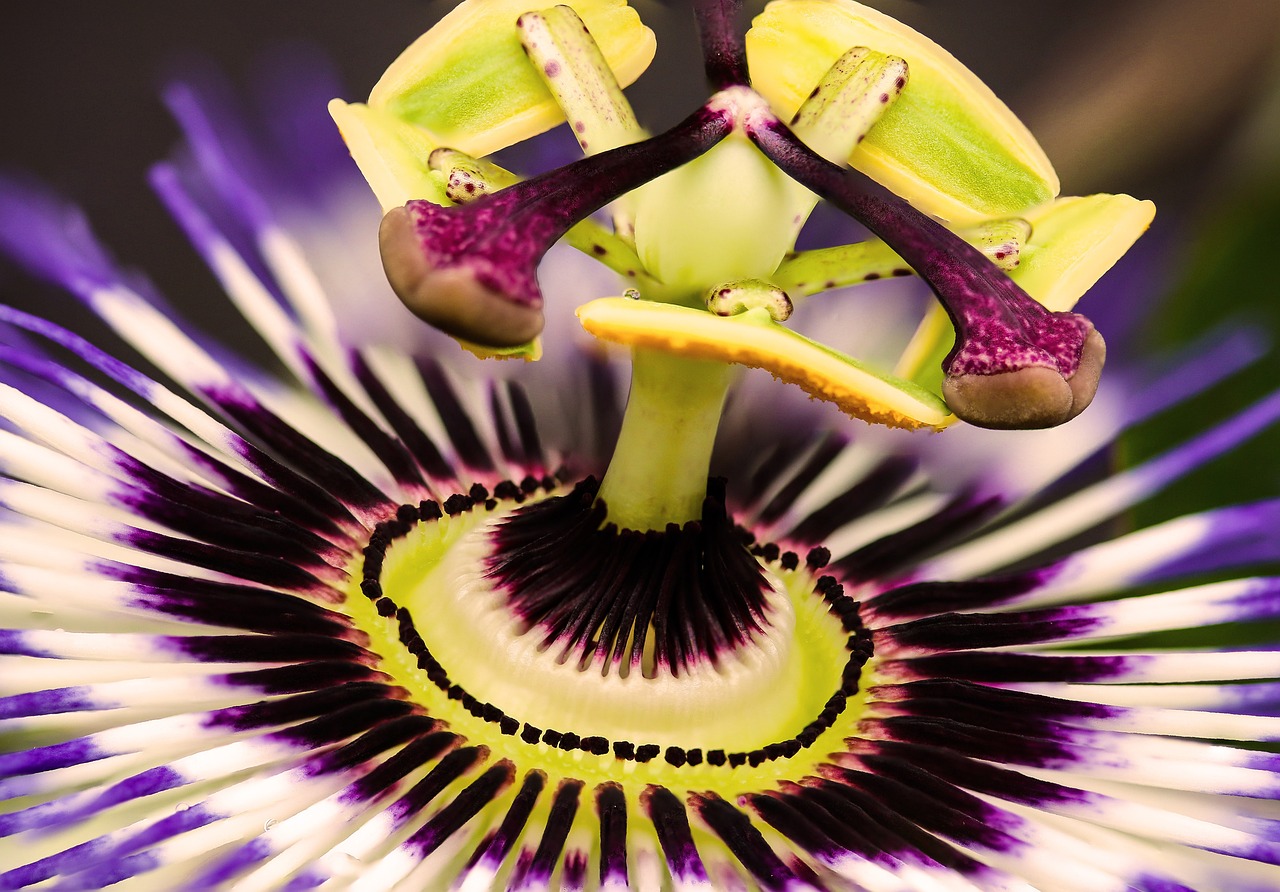
Feeding Practices for Exotic Pets
When it comes to feeding exotic pets, understanding their unique requirements is essential for their health and happiness. Unlike typical pets like dogs and cats, exotic animals have specific dietary needs that can vary widely between species. For instance, while a parrot might thrive on a diet rich in seeds and fruits, a reptile like a bearded dragon may require a mix of greens, insects, and specialized pellets. This diversity in dietary needs means that as a pet owner, you must be vigilant and informed about what your particular exotic pet requires.
One of the most critical aspects of feeding exotic pets is the frequency of feeding. Depending on the species, some exotic pets may need to be fed daily, while others might only require meals every few days. For example, young reptiles often need to be fed more frequently than adults, as they are growing and developing. On the other hand, some birds may benefit from a more consistent feeding schedule that provides them with a steady supply of nutrients throughout the day. Understanding the specific needs of your pet is key to establishing an effective feeding routine.
Another important factor to consider is the preparation of fresh food. Many exotic pets thrive on a diet that includes fresh fruits, vegetables, and proteins. However, simply tossing a few pieces of food into their habitat isn't enough. Proper preparation can enhance the nutritional value of their meals. For instance, washing fruits and vegetables thoroughly to remove pesticides is crucial. Additionally, cutting food into appropriate sizes can help prevent choking and make it easier for your pet to eat. Storing fresh food correctly is also vital; keeping it in a cool, dry place can help maintain its freshness and nutritional content.
To further illustrate the feeding practices for different exotic pets, here’s a simple table that outlines general feeding guidelines:
| Species | Feeding Frequency | Food Type |
|---|---|---|
| Parrot | Daily | Seeds, fruits, vegetables |
| Bearded Dragon | Every 1-2 days | Greens, insects, pellets |
| Iguana | Daily | Leafy greens, fruits |
| Hamster | Daily | Pellets, fresh fruits, vegetables |
In addition to frequency and preparation, monitoring your pet's health is crucial. Regularly observing your exotic pet's eating habits can provide valuable insights into their well-being. If you notice any changes, such as a decrease in appetite or unusual eating behaviors, it may indicate a health issue that requires immediate attention. Always consult with a veterinarian who specializes in exotic animals to ensure your pet receives the best care possible.
Lastly, it’s essential to remember that variety is the spice of life—and this holds true for exotic pets as well. A diverse diet not only keeps mealtime interesting for your pet but also ensures they receive a wide range of nutrients. Incorporating different food types can help prevent nutritional deficiencies and promote overall health. So, don’t hesitate to experiment with new foods (within safe limits) and observe how your pet responds!
- How often should I feed my exotic pet? - The frequency of feeding varies by species; consult care guides for specific recommendations.
- Can I give my exotic pet table scraps? - It's best to avoid table scraps as they may not provide the necessary nutrients and could be harmful.
- What types of fresh food are safe for my exotic pet? - Research the specific dietary needs of your pet to determine safe and nutritious options.
- How can I tell if my exotic pet is healthy? - Regular behavior and eating habit checks, along with veterinary check-ups, are essential for monitoring health.
Frequency of Feeding
When it comes to feeding exotic pets, one size does not fit all. Just like how you wouldn't serve the same meal to a toddler and a teenager, the varies significantly among different species of exotic animals. For instance, reptiles typically have slower metabolisms than mammals, which means they may only need to be fed every few days, while some birds may require daily meals to maintain their energy levels. Understanding these differences is crucial for ensuring your pet thrives.
For many exotic pets, the can be influenced by several factors, including age, species, and overall health. Young, growing animals often need more frequent meals compared to adults. For example, a baby iguana might require food every day, while an adult can be fed every other day. Similarly, tropical birds often need to eat multiple times a day due to their high energy demands. It's essential to research the specific needs of your pet's species to establish a proper feeding schedule.
Moreover, the quality of food and how it is prepared also play a significant role in the feeding process. Fresh fruits, vegetables, and high-quality pellets should be offered daily, while live insects or protein sources may be given less frequently, depending on the pet's dietary requirements. Here’s a quick breakdown of feeding frequency for some popular exotic pets:
| Pet Type | Feeding Frequency |
|---|---|
| Iguanas | Every 2-3 days |
| Parrots | Daily |
| Snakes | Every 1-2 weeks (depending on size) |
| Geckos | Every other day |
It’s also important to monitor your pet's weight and overall health regularly. If you notice any significant changes, such as weight loss or lethargy, it might be time to reassess their feeding schedule. Remember, overfeeding can lead to obesity, which is a common issue among exotic pets, so striking the right balance is key. Keeping a close eye on your pet’s behavior and appetite will help you make informed decisions about their diet.
Lastly, always ensure that fresh water is available at all times. Hydration is just as important as food, and many exotic pets can be prone to dehydration if not properly cared for. By crafting a tailored feeding schedule based on your pet's unique needs, you’ll be well on your way to providing the best care possible.
- How do I know if I'm feeding my exotic pet enough? - Regularly monitor their weight and behavior. A healthy pet should be active and maintain a stable weight.
- Can I mix different types of food for my exotic pet? - Yes, but ensure that the mixed foods meet the specific dietary requirements of your pet's species.
- What should I do if my pet refuses to eat? - Consult a veterinarian to rule out any health issues and consider trying different food types or preparation methods.
Preparing Fresh Food
This article explores the unique dietary needs of exotic pets, highlighting essential nutrients, feeding practices, and common misconceptions to help owners provide optimal care for their beloved animals.
Exotic pets, such as reptiles and birds, have specific dietary requirements that differ greatly from traditional pets. Understanding these needs is crucial for their health and well-being.
Many misconceptions surround the diets of exotic animals. Debunking these myths can lead to better care and improved health outcomes for these unique pets.
It's a common belief that all exotic animals share similar dietary needs. However, each species has distinct requirements that must be addressed for optimal health.
Different species, such as iguanas and parrots, require tailored diets. Knowing the specific needs of each species is essential for their growth and vitality.
A varied diet is crucial for exotic pets to ensure they receive all necessary nutrients. Offering a range of foods can prevent deficiencies and promote overall health.
While supplements can be beneficial, they are not always required. Understanding when and how to use them is vital for maintaining a balanced diet for exotic pets.
Providing the right balance of nutrients is key to the health of exotic pets. This section discusses the essential vitamins, minerals, and proteins they need.
Vitamins and minerals play a crucial role in the overall health of exotic pets. Identifying which nutrients are essential for specific species can help in formulating their diets.
Proteins are fundamental for growth and repair in exotic animals. Understanding the best sources of protein for different species is essential for their dietary planning.
Proper feeding practices can significantly impact the health and longevity of exotic animals. This section outlines best practices for feeding and caring for these unique pets.
The feeding frequency of exotic pets can vary widely. Knowing how often to feed different species is crucial for maintaining their health and preventing obesity.
Preparing fresh food for your exotic pets is not just a chore; it's an essential part of ensuring their health and happiness. Fresh fruits, vegetables, and proteins can provide vital nutrients that processed foods simply can't match. When preparing fresh food, it’s important to consider the specific dietary needs of your pet's species. For instance, while leafy greens may be a staple for iguanas, parrots might thrive on a mix of fruits and nuts. Always wash fresh produce thoroughly to remove any pesticides or chemicals that could harm your pet.
Another key point is to chop food into appropriate sizes. This not only makes it easier for your pet to eat but also encourages them to engage with their food, mimicking their natural foraging behavior. For example, slicing vegetables into bite-sized pieces can prevent choking hazards and make mealtime more enjoyable.
Storage is equally important. Fresh food should be stored in a cool, dry place and consumed within a few days to ensure its nutritional value. You can also prepare larger batches and freeze portions for later use. Just remember to thaw food safely before serving—never use a microwave, as it can create hot spots that may burn your pet.
Finally, always monitor your pet’s reaction to new foods. If you notice any signs of digestive upset, it might be best to revert to their previous diet and introduce new items gradually. This way, you can ensure that your exotic friend is not only well-fed but also thriving.
- What should I feed my exotic pet? The diet depends on the species. Research specific dietary needs for your pet.
- How often should I feed my exotic pet? Feeding frequency varies by species. Consult a vet for personalized advice.
- Can I give my exotic pet treats? Yes, but treats should be healthy and appropriate for their species.
- Is it necessary to supplement my pet's diet? Supplements can be beneficial but are not always necessary. Assess your pet's diet first.
Frequently Asked Questions
- What are the unique dietary needs of exotic pets?
Exotic pets, such as reptiles and birds, require specific diets that differ significantly from traditional pets. Each species has its own unique nutritional requirements that must be met to ensure optimal health and well-being. For instance, iguanas need a high-fiber diet, while parrots thrive on a mix of seeds, fruits, and vegetables.
- Are all exotic pets fed the same food?
No, that’s a common misconception! Each species of exotic pet has its own dietary needs. Feeding them a one-size-fits-all diet can lead to nutritional deficiencies or health issues. It's essential to research the specific dietary requirements of your exotic pet to provide the best care.
- How important is variety in an exotic pet's diet?
Variety is crucial! Just like humans, exotic pets benefit from a diverse diet that includes different food types. This helps prevent nutritional deficiencies and ensures they get all the essential vitamins and minerals they need for a healthy life. Offering a mix of fresh fruits, vegetables, and proteins can work wonders.
- Do exotic pets always need supplements?
Not necessarily! While supplements can be beneficial in certain situations, they aren't always required. It's important to assess your pet's diet and consult with a veterinarian to determine if supplements are needed for your specific exotic pet.
- What essential nutrients do exotic animals need?
Exotic pets require a balanced intake of essential nutrients, including vitamins, minerals, and proteins. Understanding which nutrients are vital for your pet's species is key. For example, calcium is crucial for reptiles, while birds may need a diet rich in vitamin A.
- How often should I feed my exotic pet?
Feeding frequency can vary widely among different exotic species. Some may require daily feeding, while others might only need food every few days. It's essential to know the specific needs of your pet to prevent obesity and ensure they stay healthy.
- What are the best practices for preparing fresh food for exotic pets?
When preparing fresh food, it's important to wash fruits and vegetables thoroughly to remove any pesticides. Additionally, chopping them into appropriate sizes can make it easier for your pet to eat. Storing fresh food properly is also crucial to maintain its nutritional value and prevent spoilage.

